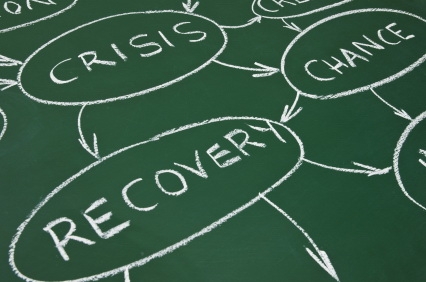Crisis Communications for Events: Does Your Show Have a Plan?

By Elizabeth Johnson
Meetings and events are not immune to crises. Everything from severe weather/natural disasters to protests to a tragic accident can affect an event and require immediate and confident communication with attendees, the media and other stakeholders.
And, while many events and the venues in which they reside have operational crisis plans in place, far fewer have communication strategies prepare ahead of time.
“I found that about half of my clients who hosted larger events (500+ attendees) did not have an adequate crisis communication plan prepared for their events,” said Jeff Kear, founder of web-based event management software firm, Planning Pod.
Prior to forming Planning Pod, Kear ran a marketing and public relations firm and drew up crisis communication plans for many medium to large events and conferences. He identified three major elements:
· Create a list of potential crises that could occur—terrorist attacks, protests, dreadful performances/speakers and major "acts of God". Draw out a course of action and response for each. This is the most important step so that you have a map for what could happen and how you will respond to it.
· Identify your crisis communications team and forms of communication. In a crisis, order is disrupted, so it's critical to have point people identified who know their roles, will immediately be in touch with each other and act as spokespeople. In addition, identify at least two modes of communication, like phone and text. Include an element that does not require cellphones (like 2-way walkie-talkies) in case cellular communications go down.
· Set up monitoring channels in advance. These days, bad news hits social media almost faster than you can react, so you should get ahead of this by setting up alerts for mentions in social media regarding your event. A point person should monitor these before and during the event.
“Unprepared or ineffective communication during a crisis can have a profoundly detrimental effect on your event,” said Kevin Miller, president and chief strategist at marketing agency, Frost Miller.
To that point, several events have prepared a crisis communication plan.
The Texas Firearms Festival’s (TFF) begins its crisis communications plan by creating a matrix that defines both the probability and impact of a crisis. It recognized that the scenario of highest impact would be an accidental death at the festival, but that other scenarios that might occur, such as overheating or dehydration, since the heat index during this outdoor event reached the high 90s. It prepared for this logistically by having plenty of water and shuttle services available.
“From a PR standpoint, before the Firearms Festival we verbally discussed simulations of potential crises with the County, which included a ceasefire and an effective radio communications plan between the emergency responders and the TFF team. An organized pre-planned response that identifies everyone’s assigned roles makes response nearly automatic,” explained Karen Johnson of Rural America OnShore Outsourcing.
TFF also discussed ways it would recover from a crisis. The key to a successful recovery is to have carefully crafted messaging available that included effective public dialogue, transparency, honesty, accountability and responsibility during and after the crisis.
“We had defined spokespeople prepped for press interviews long before the event with clearly defined messaging,” added Johnson.
Similarly, Special D Events puts time into crisis communication planning.
“Our Crisis Management Plans include how to identify if you are experiencing a crisis, a list the main players on the crisis management team, the responsibilities of the crisis team, the steps to developing a communications plan in reaction to the crisis, a list of what to do/not do and a list of emergency facilities,” said Lindsay Krause, senior meeting & event manager at Special D Events.
It has activated this plan during a serious situation in 2007 when a Survival Flight team perished in a plane crash days before the Grand Opening of the University of Michigan Health System Cardiovascular Center.
Behind the scenes, its crisis team met with hospital executives to evaluate if the event should be canceled. After considering many factors, the Health System decided not to cancel the grand opening but modify the event.
Krause suggests event planners ask the following questions for their communication plans:
· Who needs to know the information?
· Who is responsible for communicating to those specific audiences?
· Does each team member who is responsible for communicating to a particular audience have all the facts and fully understand the situation?
· What are the best avenues for communicating the message to the audiences?
· What is the timeline for communicating to each audience?
By definition, crises occur without warning. The only way to successfully navigate one is to prepare ahead of time.
“Hopefully, your event will never need to use it, but putting in the effort to be prepare for any scenario will pay dividends if you do,” Miller said.


Add new comment